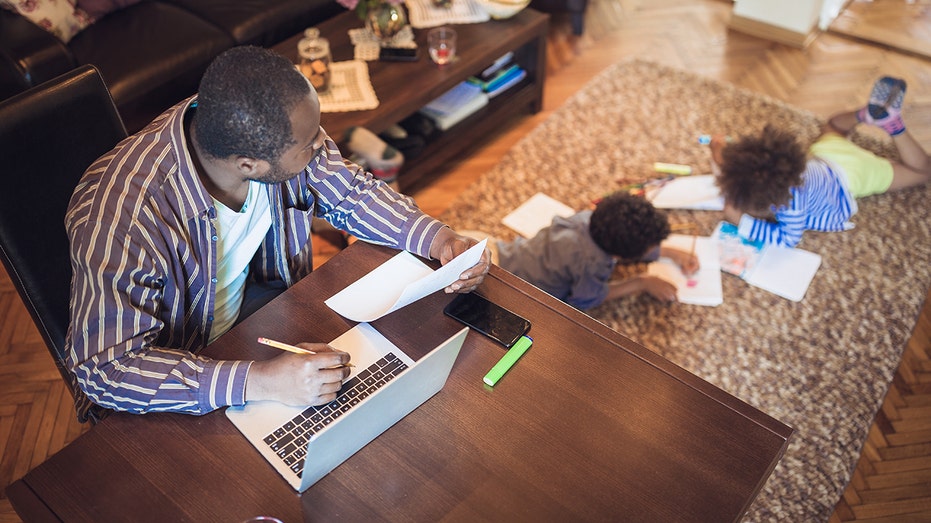New normal for job seekers is remote work despite coronavirus reopenings
72 percent of job seekers said they would be hesitant to return to the office, new data suggests
Americans getting new jobs during the COVID-19 pandemic will likely be working from home despite offices reopening across the country, new data suggest.
Nearly half of job seekers (45.5 percent) will adjust to working remote, with 42 percent looking for a permanent work-from-home employment situation, according to a new poll from career website Monster.com with consumer data company Jebbit.
The poll surveyed more than 700 people in the U.S. and found that 72 percent of job seekers said they would be hesitant to return to the office, even when they're allowed to, and the majority (60 percent) of workers said they don't wish to have meetings in person.
HOW TO FIND REMOTE WORK AMID CORONAVIRUS UNEMPLOYMENT

Job seekers are looking for remote work even as offices start to reopen, new data suggests.
"The biggest change will involve flexibility on both the employer and employee sides," Monster's career expert Vicki Salemi told FOX Business, explaining: "Employers understand the need of workers and in turn, workers are embracing the ability to pivot and not feel guilty about it. The majority of employers support these ongoing shifts."
When the coronavirus crisis broke out in the U.S. in mid-March, a number of companies began hiring specifically for remote jobs particularly in industries like software, health care, e-commerce and customer service. However, as states begin to open offices and retail operations allowing thousands of employees to get back to work, the reality is many employees will likely continue to stay put.
SHOULD YOU USE YOUR PAID TIME OFF DURING THE CORONAVIRUS?
Tech companies like Google, Twitter, Amazon and Facebook have said employees that have remote work capabilities would be able to continue to work from home.
There are some downsides to being out of the office, however. While research has suggested that working from home can boost productivity, it often leads to employee burnout when workers have a hard time separating work-life balance, according to a separate study at the University of Cardiff in the UK. Researchers found that employees are more likely to clock in extra hours than a typical workday and put in more effort than needed at home.
FOUR DAY WORK WEEKS ARE BETTER FOR BUSINESS, MICROSOFT FINDS
And employees already started to feel burned out in May, two months after COVID-19 related shutdowns. A separate Monster and Jebbit poll conducted in May of 1,251 workers found that just over half of respondents (51 percent) admitted to experiencing burnout while working from home during COVID-19, while 52 percent said they're not planning to take time off or vacation to decompress.
"Workers feel that their employers expect them to be available outside of regular work hours—increasing expectations when people return to work in the new normal, whether that’s full time on-site or a hybrid of work from home and on-site, that they'll be 'on' more, decreasing the notion of work-life balance as the lines get more blurred," Salemi said.
CLICK HERE TO READ MORE ON FOX BUSINESS




















